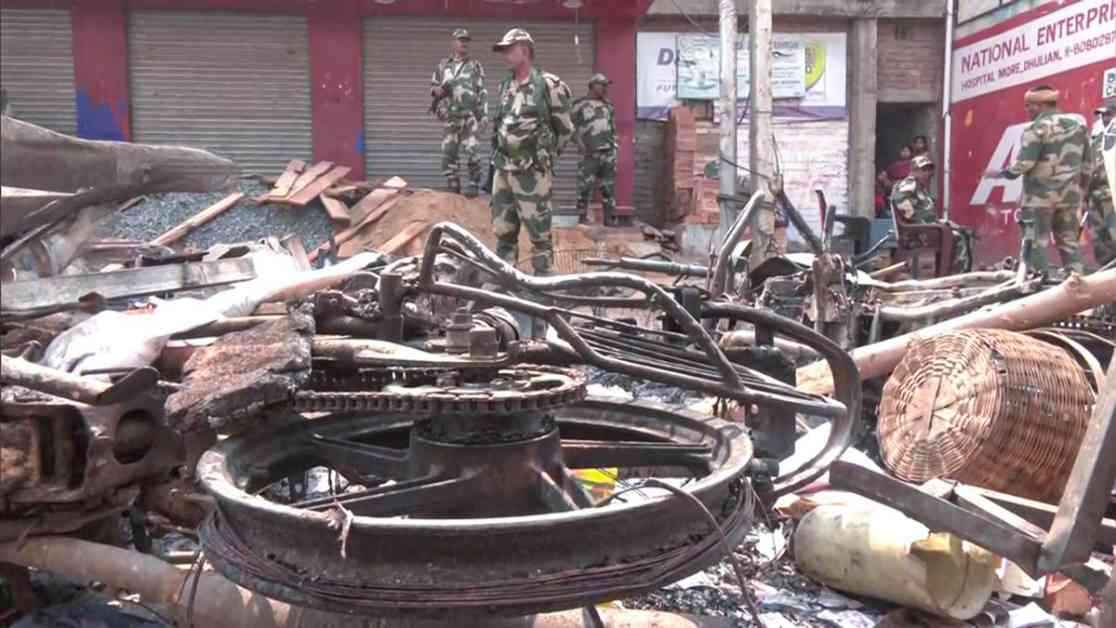The tranquil district of Murshidabad in West Bengal was recently thrust into chaos when violent protests erupted on April 11, 2025, following the controversial Waqf (Amendment) Act. The aftermath of the clashes left three individuals dead and numerous others injured, prompting the deployment of seventeen companies of Central Armed Police Forces (CAPF) to restore order in the region. As the situation escalated, over 150 arrests were made, with one person sustaining a bullet wound and receiving medical attention at a State-run health facility.
Amidst the turmoil, Director-General of Police for West Bengal, Rajeev Kumar, took charge, leading discussions with senior police officials in Murshidabad to address the unfolding crisis. Reassuringly, Kumar declared that the situation was “very much under control,” a statement that aimed to quell rising concerns and instill a sense of security among the residents. Jangipur Superintendent of Police Ananda Roy echoed this sentiment, urging the public not to succumb to rumors and encouraging them to seek clarification from the authorities if needed. With 155 individuals already apprehended in connection to the violence, law enforcement officials remained vigilant in their efforts to restore peace and stability.
Expert Insights on the Unrest
To bolster the security measures in Murshidabad, 23 high-ranking officers from the State police and other agencies were dispatched to the region, including Karni Singh Shekhawat, Inspector-General of Police for the Border Security Force. Complementing this reinforcement, nine companies of the BSF were strategically positioned in the strife-torn areas to contain further escalations. Tragically, the clashes resulted in eighteen police personnel sustaining injuries, underscoring the volatile nature of the situation that unfolded on April 12.
In response to the unfolding events, political figures and leaders from various parties voiced their concerns and proposed solutions to address the unrest. Congress MP Isha Khan Chowdhury, representing the Malda Dakshin Lok Sabha constituency encompassing the affected areas, alongside Congress leader Adhir Ranjan Chowdhury, called for an all-party meeting to address the violence. Similarly, the State BJP leadership mobilized protests in Kolkata, attributing the unrest to alleged radical outfits such as the Population Front of India (PFI) and the Students Islamic Movement of India (SIMI).
Political Responses and Allegations
Accusations and counter-accusations permeated the political landscape, with State BJP president Sukanta Majumdar claiming a conspiracy behind the violence orchestrated by radical groups. Furthermore, BJP MP Jyotirmoy Singh Mahato urged Union Home Minister Amit Shah to designate select bordering districts of West Bengal as “disturbed areas” to mitigate future unrest. Amidst the chaos, the Trinamool Congress leadership condemned the BJP for propagating false narratives and utilizing misleading images to stoke communal tensions in Murshidabad.
Trinamool leader Kunal Ghosh denounced the dissemination of fabricated photos on social media, highlighting instances where images from unrelated incidents were misconstrued as depicting the unrest in Murshidabad. Moreover, allegations of threats and intimidation by BJP leaders were brought to light, prompting the Bengal government to reaffirm its commitment to upholding law and order without bias based on religious or communal affiliations. As tensions continued to simmer, the call for accountability and justice resonated across the political spectrum, emphasizing the imperative of maintaining peace and harmony in the region.














